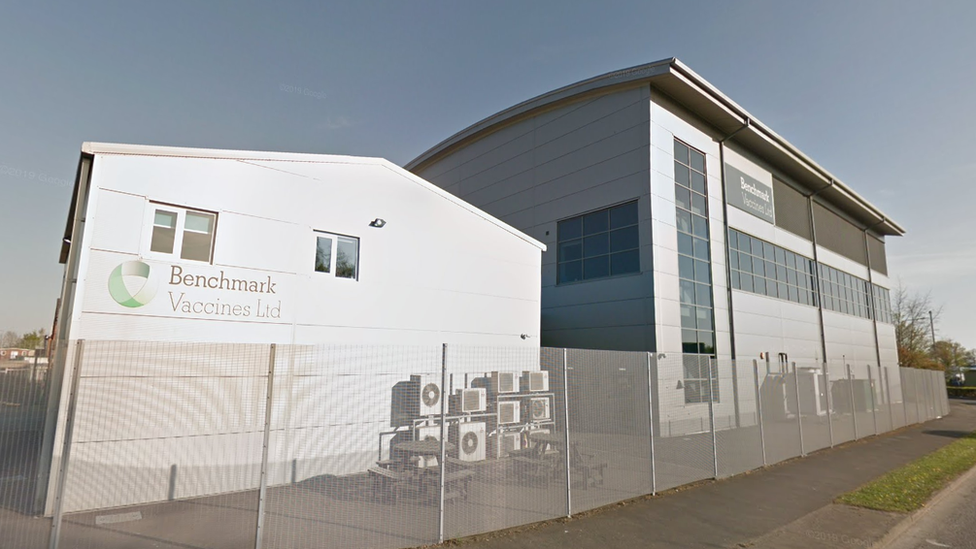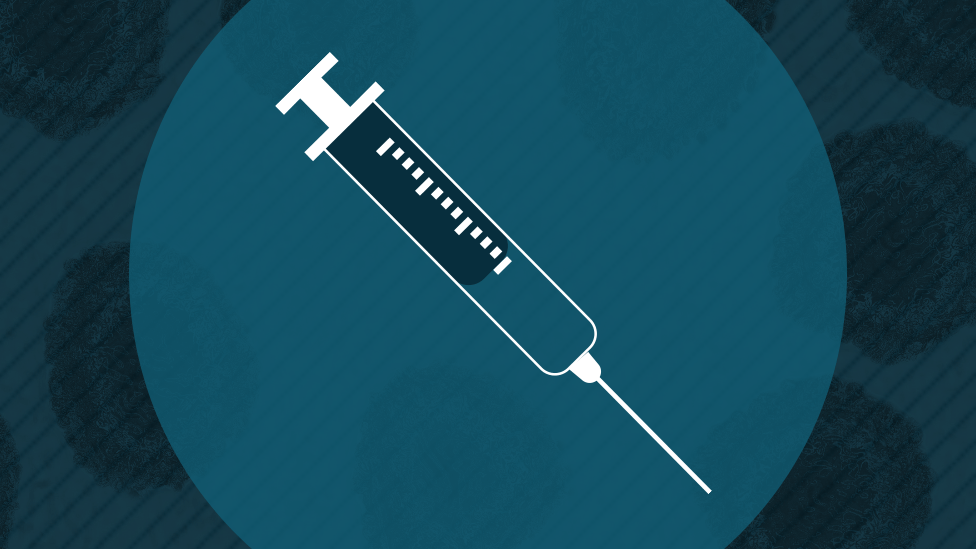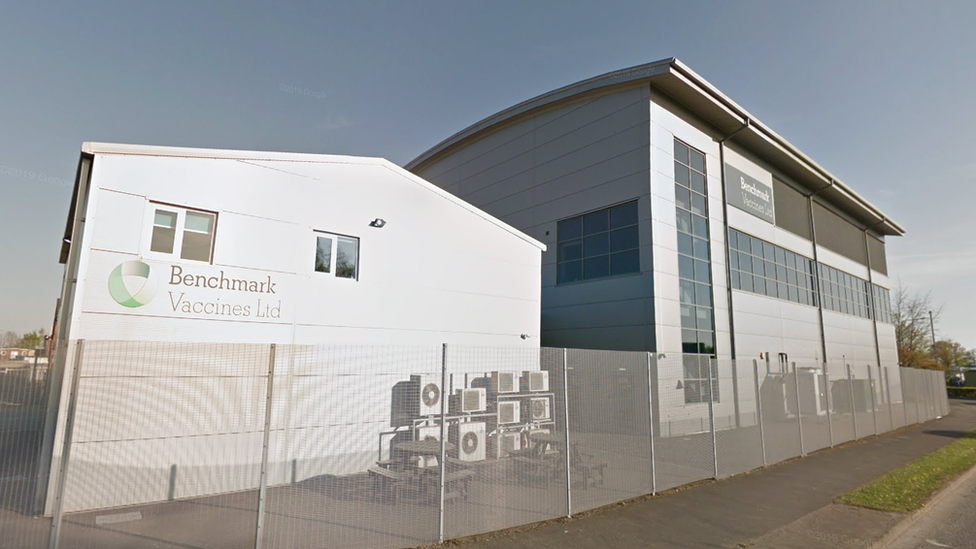Factory takeover says a lot about government strategy
- Published
- comments

The plan is to upgrade the existing facility at Braintree into a state-of-the-art centre.
The Department for Business has announced it is buying a former fish vaccine plant in Essex for £16m - and spending tens of millions more to upgrade it.
The government says the acquisition will give it a re-purposed vaccine production facility on UK soil and will lay down a marker that it intends to make the UK more self-sufficient in critical medicine manufacturing.
It will also demonstrate that it can and will be an important cornerstone investor in industries that will help the UK become a high skilled, high-tech and knowledge-based economy.
When you are spending hundreds of billions of taxpayers' money on combating the economic consequences of Covid-19, this is small beer - a rounding error on the £385bn the government will borrow and spend in 2020.
Peter George, the Chairman of Benchmark UK, from whom the government bought the facility, saluted the government on completing the purchase of his business "at a pace never seen before".
Business Secretary Alok Sharma said: "We are taking all necessary steps to ensure we can vaccinate the public as soon as a successful Covid-19 vaccine becomes available.
"This new Cell and Gene Therapy Catapult Manufacturing Innovation Centre, alongside crucial investment in skills, will support our efforts to rapidly produce millions of doses of a coronavirus vaccine while ensuring the UK can respond quickly to potential future pandemics."
The facility will not be ready to start production until the end of next year, but by commercial standards this seems like a shotgun wedding.
Mr George emailed the government's chief scientific adviser, Sir Patrick Vallance, on 26 May, telling him he had a plant that, by his own admission, he had found "difficult to sell".
He received an answer from Sir Patrick "within ten minutes". Telephone calls then occurred - late at night and early morning - with government officials to secure a sale that is expected to close within the next five days.

Even in the high-octane private sector world of merger and acquisition that is speedy.
Although small, this transaction seems to tell us a lot about the government's strategy towards the virus and the appetite for abandoning decades long reliance on "the market" to provide solutions to UK public health needs.
Two things seem to stand out.
First is a government realisation that although some of the world's leading pharma companies are based in the UK - GSK, AstraZeneca, etc - the large scale manufacture of a future vaccine will largely be done outside the UK, and the NHS will be in an international scramble to secure supplies.
Second: For free market advocates it belies a recent and worrying lack of faith on the part of a Conservative government that the private sector can deliver when called upon - confirming an ideological shift in the way this government intends to operate.
The facility will not be operational until December next year. So, it would be unfair to describe this as a knee jerk reaction to the current crisis.
What it does seem to demonstrate is that the government is not averse to using taxpayer money to take a significant role in areas previous Conservative governments would feel were outside their competence.
- Published23 July 2020

